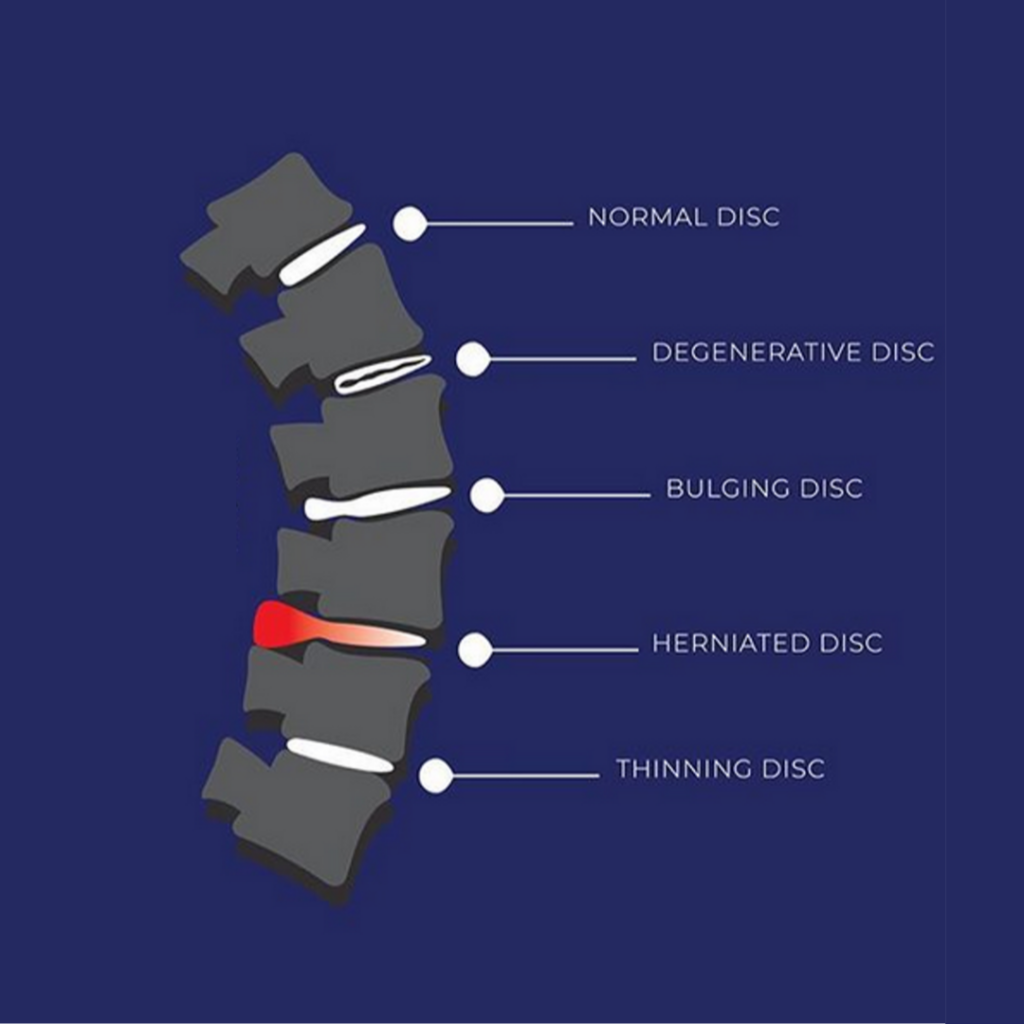Spinal discs are like shock absorbers between the vertebrae, or bones, of your spine. Each disc is a flat, circular capsule about an inch in diameter and one-quarter inch thick. They help your spine stay flexible, so you can bend and twist.
Although a traumatic injury can damage a disc, problems with disks are often brought on by the normal aging process or by everyday activities, such as lifting heavy objects the wrong way, bad form with exercising or sports-related activity, or slipping and falling. Sometimes, a disc swells, tears, or degenerates without any apparent cause. Disc problems are most common in men and women ages 30 to 50, although they can occur in anyone at any time and do not always cause pain.
The main types of disc disorders are:
| Herniated or Ruptured Disc |
The disc has partly or completely broken open which can cause the jelly-like substance inside the disc to spread out and put pressure on the spinal cord or nerves and the disc loses some ability to be a shock absorbed. This is also sometimes called a “slipped disc” but the disc doesn’t literally slip but instead breaks open. |
| Degenerative Disc Disease | Disc degeneration is a natural part of aging and shows signs of “wear and tear”. The disc may shrink, lose its shape, lose its flexibility, wear out or get very thin, which could cause pain, instability and other symptoms. |
| Thinning Disc | This is a common form of degenerative disc disease as the disc may get thinner as it starts to wear out. |
| Bulging Disc | A bulging disc has not yet broken open, but is likely to rupture. The bulge may extend in any location and may press on a nerve or cause pain, but other people may have no symptoms from a bulging disc. |

Disc disorders can be challenging to diagnose because the symptoms can vary with patients and do not necessarily match the severity of the condition. Pain is a personal experience so what may be mild to one person can feel severe or overwhelming to another.
Typical symptoms of disc disorders include:
- Back pain
- Leg pain
- A sense of numbness, tingling or “pins and needles”
- Incontinence
- Leg weakness
Schedule an appointment
Your well-being is important to us. Click the button below or call us to schedule an appointment with one of our orthopedic specialists. If your injury or condition is recent, you can walk right into one of our Raleigh Orthopaedic Urgent Care locations for immediate care. For rehabilitation and physical therapy, no referral is needed to see one of our physical therapists.
